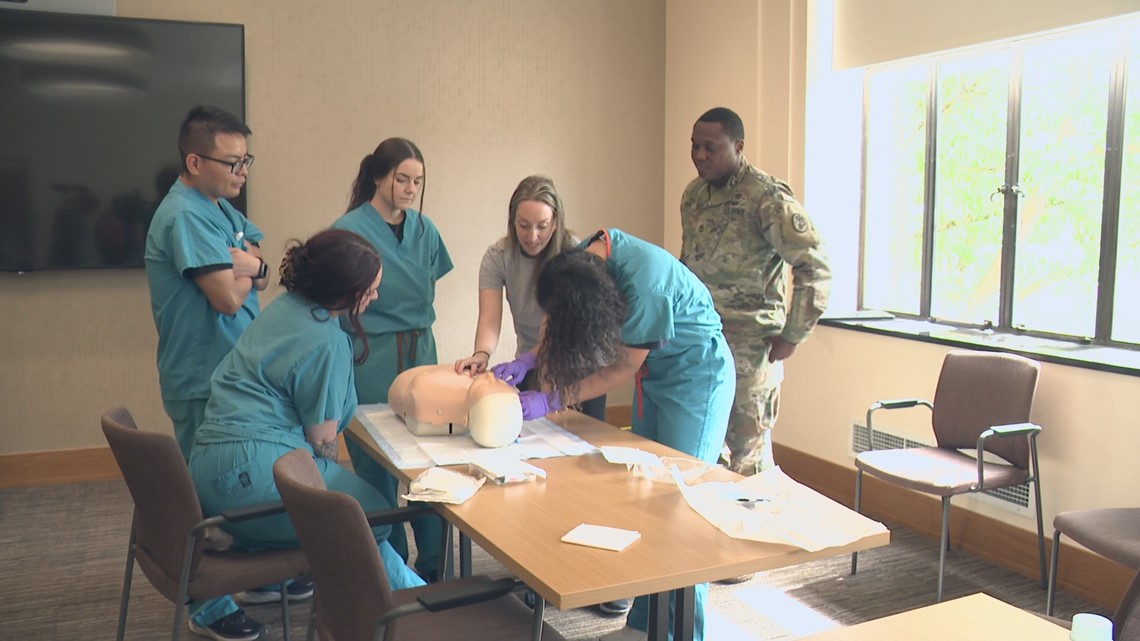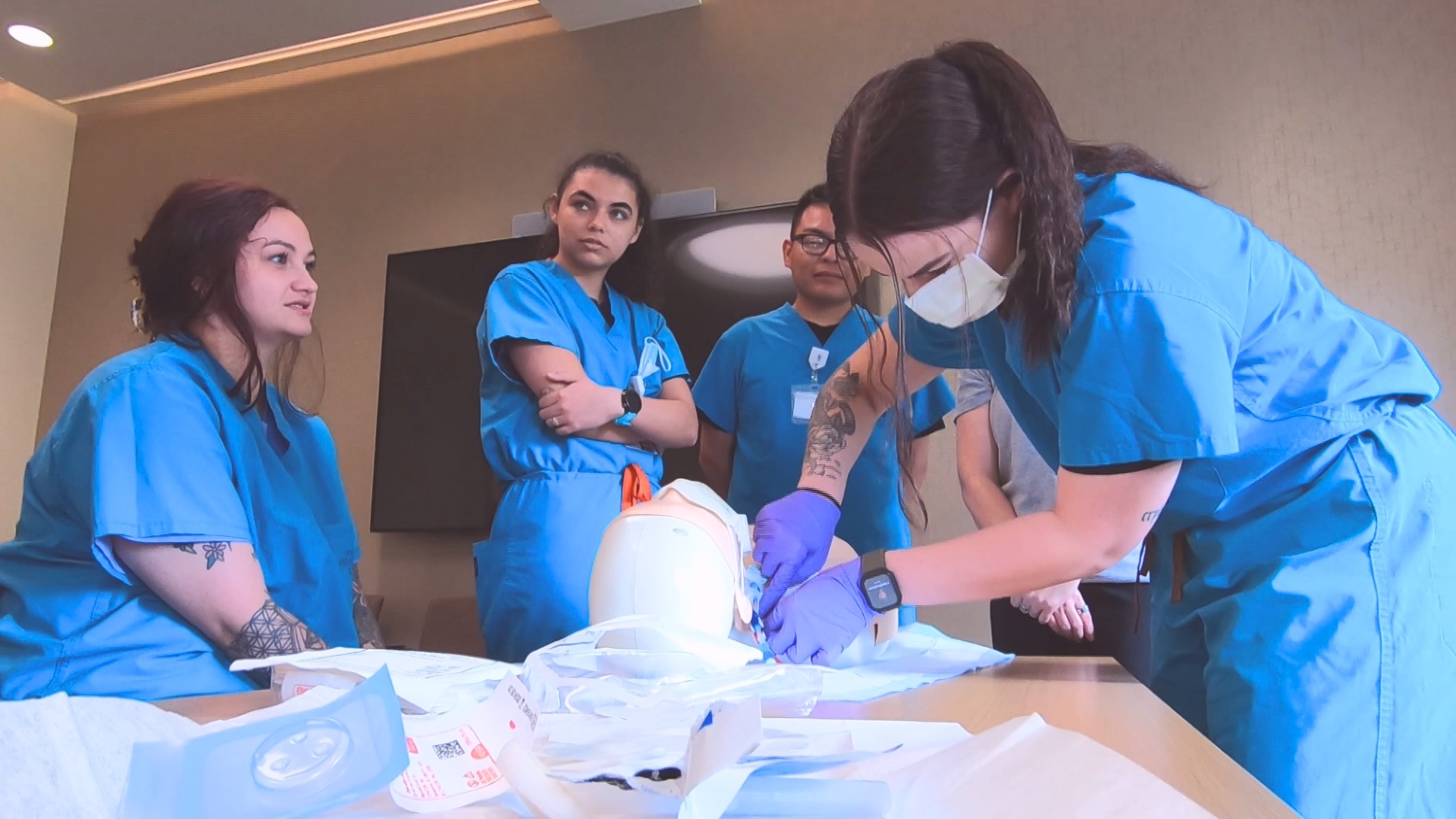PORTLAND, Ore. — About a half dozen U.S. Army medics and nurses are embedded at Oregon Health and Science University this month for a unique training program.
The combat medics and nurses are visiting OHSU in Portland through the Army's SMART program, which stands for Strategic Medical Asset readiness Training. From wound care and sterile prepping, to learning intubation techniques, the Army combat medics and nurses are getting specialized, hands-on experience that is critical for times of combat.
"We are in an inter-war period right now, and a lot of the lessons that were learned in the wars in Iraq and Afghanistan are being lost," said Dr. Martin Schreiber, a surgeon at OHSU and a Colonel in the U.S. Army Reserve. He has served in the Army since 1984.
The goal of the Army medics and nurses who participate in the course is to sharpen their emergency medical skills.


"You kind of lost some of those skills and that knowledge atrophies, but right now, after this, I feel a lot more sharp," said Sgt. Colten Fowler, an Army combat medic taking part in the program.
"It was nice to get hands on with some real patients and see people who are really sick and actually injured people, able to put hands on them and help them," Fowler said.
OHSU is one of only four U.S. civilian trauma centers participating in the program, and it's the only hospital in Oregon to offer the two-week course.
There are two level one trauma centers in Portland. They have the capability of providing highly specialized, total patient care for every aspect of an injury. According to Schreiber, those facilities see over 4,400 trauma patients a year, and many of them have injuries similar to what soldiers face in combat.
"They are gunshot wounds or stab wounds. They are very similar to the types of wounds they are seeing down range in wartime," Schreiber said.

